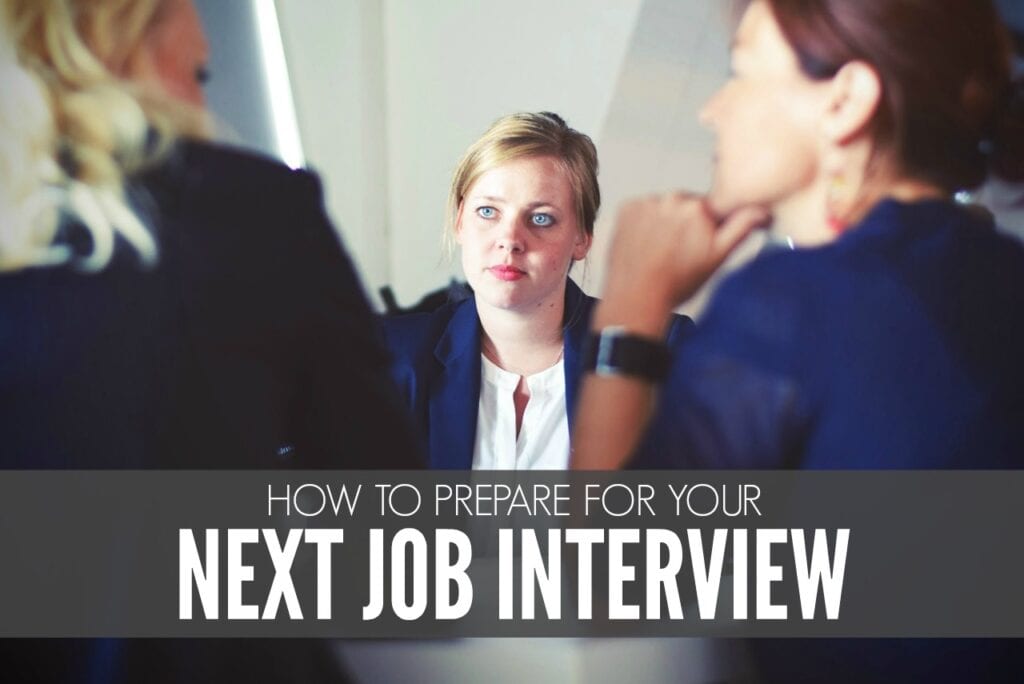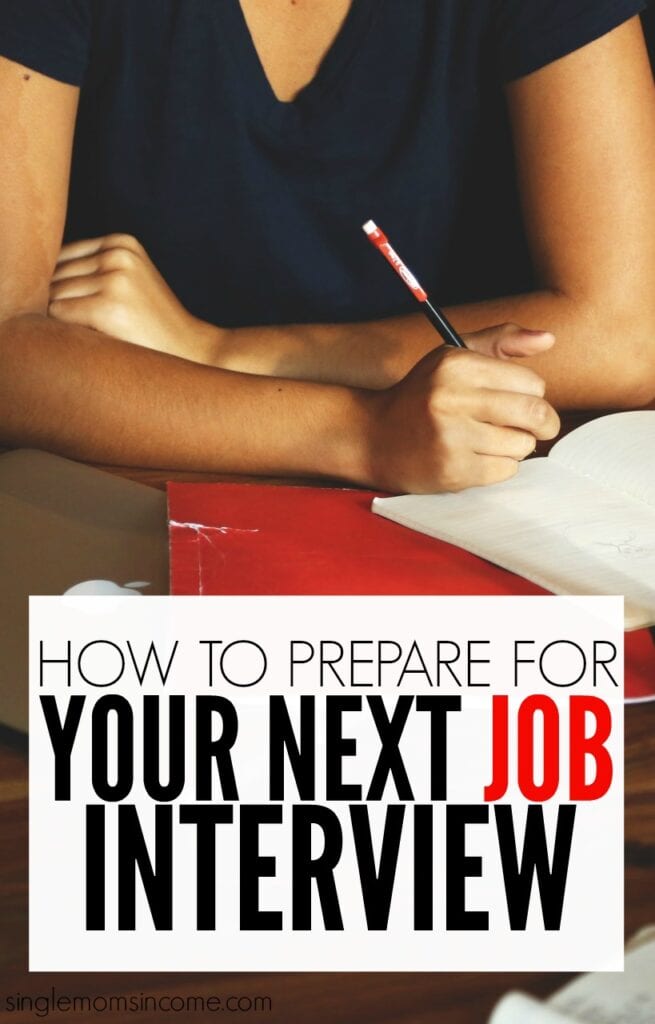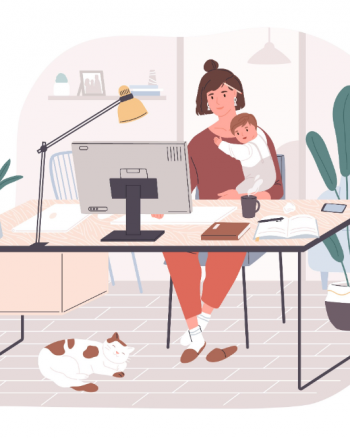
I’ll admit, I always felt like I had bad luck when it came to landing jobs in the past. Back when I was just entering the workforce, I remember watching all my friends obtain fun part-time jobs with ease when all I could land was a job preparing samples in different grocery stores.
I did that for three years straight – mainly because I didn’t feel comfortable applying for a new job and facing potential rejection since I was so used to it.
After college, I felt like I had to work twice as hard to get noticed and land interviews. Luckily, all my hard work seemed to pay off and provided me with the skills and experience I needed to land a new job when it mattered most.
The Importance Of Your Interview
If you want to start earning more money or transition out of a job you don’t like, you’ll most likely have to find someone else to hire you.
Even if your goal is to work from home, some employers might still require a phone or Skype interview to ask you some questions. As a freelancer, I’ve interviewed for jobs before even though it wasn’t a regular occurrence.
With a traditional employer, interviewing is often a must. It means you’ve already piqued the recruiter’s interest and you just need to close the sale in a sense and elaborate on some of your experience.
Interviewing is often a direct link between you and the job you want. No pressure, of course. But with that being said, you want to be as prepared as possible so that everything goes well.
Here are some of the best ways to prepare for an upcoming interview so you can ace it.
Get To Know Your Audience
It’s important to know as much as you can about who you are interviewing with and the company they represent.
You can search for the company online and learn basic details from their website along with the company mission. It’s crucial to make sure you understand the company’s goals and mission before the interview so you can explain how you will help meet them.
If you know the name of the person who will be interviewing you, you can always do a quick search of their name to learn more about them, the team they manage, and you can even connect on LinkedIn in an attempt to expand your network.
Audit Your Online Presence
Most people are going to look you up before offering you a job. You want to make sure what they see is only a positive representation of you.
Try searching for you name on Google (add in the name of your town if your name is common) so you can get a preview of what potential employers see. You can sign up for a LinkedIn account if you haven’t already which would show up in search results if people were to look you up.
Delete images, make your social media profiles private if you can and make sure there is nothing compromising on your feed.
You may think that little things like this don’t matter especially at the interview stage but it could make a big big difference. A few years ago I landed a really good full-time job that paid well.
After being on the team for a few months, I learned that there was a woman who interviewed before me who they wanted to offer the position to. However, my boss looked at her Facebook page and saw some stuff he didn’t like so she didn’t get a callback.
Anticipate Which Questions Will Be Asked
While you can’t predict every question the interviewer will ask, you can still prepare for the cliche ones like: ‘So, tell me about yourself’ or ‘What makes you the best person for the job?’
Some interviewers also like to quiz you to see how much you know about the company already which is why doing your research is important.
The interview process is all about getting to know you better professionally and understanding how your experience and skills will factor into the role. This often means you’ll be asked a lot of open-ended questions about your past work experience.
Be ready to give specific examples about your work experience along with how you reacted in certain situations. You can even look up general interview questions online and conduct a mock interview with someone you know to prepare.
Pick Out Your Clothes Ahead of Time
If you’re going to be interviewing in person, pick out the outfit you will wear at least one day in advance that way you won’t have to worry about it.
Don’t let your clothes sabotage your interview so make sure everything is washed, ironed and laid out just in case you happen to be running late.
I have a bad habit of thinking that I have something specific in my closet, only to find out that I got rid of it a few weeks ago and forgot or just can’t find it. Don’t let that happen to you on your big day.
Get All the Details Organized Along With Your Schedule
Try to avoid scheduling too many tasks and responsibilities on the day of your interview. You don’t want to feel pressured or rushed or even forget something.
Also, having a flexible schedule can accommodate any unexpected changes or even allow you to chat with the interviewers a little longer.
I once had an evening interview for an internship that was supposed last 30 minutes but went well over an hour. I didn’t mind because by the end of the interview, I’d landed the position and had a start date.
Another important thing you want to do is figure out all the details and organize them in your calendar or even do a test run to make sure interview day will run smoothly.
If you have a specific location you need to interview at, save the address in your navigation and know how long the trip will take. If you have a conference number you need call for your interview, make sure you have it on hand and don’t need to search through your email inbox at the last minute.
Getting these little tasks out of the way can allow you to focus on the most important aspects of your interview and demonstrate that you can be professional and organized.
Interviewing for a new job can help you break into a more profitable career field or earn more money in your current field. By meeting your income goals, you can start to meet other financial goals as well.
What’s your go-to strategy when it comes to preparing for an interview?




I think one thing to do is ask yourself “Why do I want this job?” and to have a solid answer. Even if it’s not a question that gets asked during the interview, having this in your head will provide a framework for your interview that you can build upon. Good tips. Thanks for sharing.
That’s a great tip!
really interesting post, thanks for sharing it is important know why you want “that job and why you are the right candidate for it”
Very true. Interviews used to make me so nervous and my biggest fear was being stumped with a question I wasn’t prepared for. I think asking yourself why is a great question though because your answer can even help you bounce back if you didn’t do so well in other areas of the interview.
Hi Chonce,
This is a good read. Apart from what you have discussed here, I also want to add one thing. In a survey, it has been found that interviewee has almost 90 seconds to convince interviewers to hire them. So whatever you are trying to do, please put your first impression as the best.